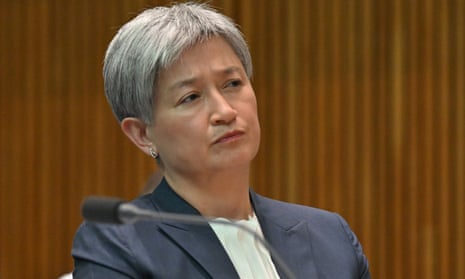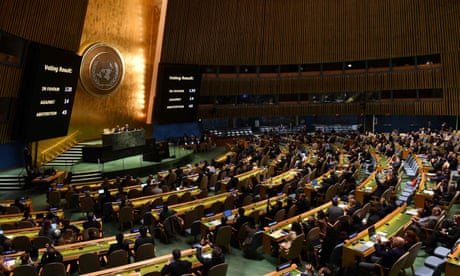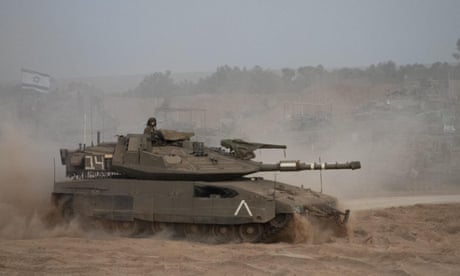Contemporary politics,local and international current affairs, science, music and extracts from the Queensland Newspaper "THE WORKER" documenting the proud history of the Labour Movement. MAHATMA GANDHI ~ Truth never damages a cause that is just.
Tuesday, 31 October 2023
Penny Wong urges Israel to ‘listen’ to friends and warns world won’t ‘accept continuing civilian deaths’
Extract from The Guardian

The Australian foreign minister, Penny Wong, says it is ‘critical that Israel listens’ when friends urge it to ‘protect civilian life’, amid the ongoing bombardment of Gaza.
Australian foreign minister’s call comes as six former prime ministers issue joint statement expressing solidarity with Jewish and Palestinian communities.
Daniel Hurst Foreign affairs and defence correspondent
Mon 30 Oct 2023 16.27 AEDT
Last modified on Mon 30 Oct 2023 19.41 AEDTAustralia’s foreign affairs minister, Penny Wong,
has urged Israel to “listen” when its friends ask it to protect
innocent lives in Gaza and warned that the world “will not accept
continuing civilian deaths”.
Six former Australian prime ministers also weighed in on Monday, expressing solidarity with both the Jewish and Palestinian communities and suggesting that terrorists would win “if our hearts are filled with hatred”.
But Wong’s comments on Monday reflect a strengthening of the Labor government’s calls for Israel to minimise civilian deaths in Gaza. The foreign minister said civilians on both sides had been “murdered” in the “dreadful, tragic conflict”.
It is understood Wong’s comments were, in part, referring to Israeli settler violence in the West Bank.
Seven Palestinians are reported to have been killed by settlers and other violence has also been reported in the past three weeks - actions that both the US president, Joe Biden, and the French foreign ministry have condemned.
Guardian Australia understands Wong has also instructed her department to verify reports that the Israeli Defence Forces have issued evacuation orders at Al-Quds Hospital in Gaza.
Sources said the government acknowledged that Hamas was “burrowed into civilian infrastructure” but was worried that “such a move would cause massive casualties and cause uproar throughout the region”.
The moves come after the Coalition accused the government of a fracturing of cabinet solidarity, after Ed Husic said Palestinians were being “collectively punished for Hamas’s barbarism” and Tony Burke said there must not be “selective grief”.
Wong told ABC Radio: “It is a dreadful, tragic conflict. We are seeing loss of life. We are seeing civilians on both sides [who] have been murdered.”
“We have seen civilians up on both sides in a lot of pain, and obviously, we still have Israeli hostages who have been taken, that Hamas is still holding,” Wong said.
“When Israel’s friends urge Israel to protect civilian life, as we have, it is critical that Israel listens.”
Wong said the UN general assembly vote on Friday – in which 120 countries including France and New Zealand voted for an immediate humanitarian truce – indicated “that the international community will not accept continuing civilian deaths”.
Only 14 countries, including the US and Israel, actively voted against the motion, drafted by Jordan.
Australia was among 45 countries – including the UK, Germany, India and Canada – that abstained from voting. Australia argued the motion was “incomplete” because it did not directly condemn Hamas for the 7 October attacks.
Wong said she was in alignment with the US national security adviser, Jake Sullivan, who said on Sunday that Israel had a duty to defend itself but also “a responsibility to distinguish between terrorists and ordinary civilians”.
Gaza’s health ministry – which is run by Hamas – has reported the deaths of at least 8,000 Palestinians, including more than 3,300 children and more than 2,000 women, since Israel began its bombardment of the besieged strip after the 7 October attacks.
The Israeli government declared the country was at war after surprise cross-border attacks in which Hamas killed about 1,400 people in Israel and took more than 200 hostages to Gaza.
All of Australia’s living former prime ministers except Paul Keating jointly published a statement on Monday condemning “the cruel and murderous attack on Israeli families by Hamas on October 7” and calling for the unconditional release of the hostages.
John Howard, Kevin Rudd, Julia Gillard, Tony Abbott, Malcolm Turnbull and Scott Morrison said Israel’s legitimate objective of defeating Hamas “must be accompanied by support and protection for the civilian population of Gaza”.
The former PMs – including Rudd, the current Australian ambassador to the US – said Hamas “sought to provoke Israel into a reaction that would kill countless innocent civilians in Gaza”.
“If our hearts are filled with hatred, then we will be doing the terrorists’ work,” the joint statement said. “At home in Australia we must treat each other with love and with respect. We must support those who are grieving and distressed.”
The former leaders said the conflict must not be allowed to “turn Australians against each other” and there was “no more tenaciously evil race hatred than antisemitism”.
“We believe we speak for the vast majority of Australians, of all faiths and of none, when we say we stand in solidarity with Jewish Australians at this time,” the former prime ministers said.
“Likewise, we stand too with the Australian Palestinian community whose families are dying and suffering in this terrible conflict.”
The Herald Sun reported on Sunday that the joint letter had been discussed with the Zionist Federation of Australia and all seven living former prime ministers had been “in discussion” about signing it.
That story prompted Keating to issue a statement saying he had already indicated he “would not be agreeing to join other former prime ministers in authorising the statement” and “that remains my position”.
Guardian Australia has been told Rudd was speaking in his capacity as a former prime minister, not as ambassador, but Wong’s office and the Department of Foreign Affairs and Trade had been aware of his intention to sign it.
The education minister, Jason Clare, said on Monday he feared “darker days ahead” and “more bloodshed to come overseas – and with that bloodshed, more division here, more fear, more grief and more anger”.
“A few weeks ago, a Jewish friend of mine told me that he felt afraid to send his children to school here in Australia,” Clare told a faith-based higher education summit in Canberra on Monday.
“The same day, a Muslim friend of mine told me that he was afraid his family in Gaza would not be alive tomorrow.”
Monday, 30 October 2023
Damning silicosis report calls for world-first ban on deadly engineered stone —will governments listen?
Extract from ABC News
Link copied
The resounding message of the Safe Work Australia report is simple: Ban engineered stone benchtops and save worker lives.
It's a message that resonates most with unions, customers, health experts and tradies like Ken Parker, a father of two, who cut, grinded and polished artificial stone slabs.
In 2019, he was given a life expectancy of five to 10 years after being diagnosed with the preventable work-related lung disease, silicosis.
Parker's words are even more pointed: "Engineered stone benchtops are straight up killing people and the only way to stop it is to ban it."
The decision is now in the hands of state and federal governments, who have had the report since August.
Instead of reaching consensus on Friday, state and federal workplace ministers agreed to reconvene before the end of the year to decide the fate of artificial stone benchtops, after one or two states requested more time.
If agreement is reached — and so far federal Minister for Workplace Relations Tony Burke, NSW Premier Chris Minns, South Australia, Victoria and Queensland all support a total ban — Australia will become the first country in the world to eliminate artificial stone.
It's a move that would have global ramifications.
Safe Work's report lays bare the economic and scientific implications of working with engineered stone, which will make it harder for any state to squib.
It says the only way to ensure that another generation of Australian workers do not contract silicosis from such work is to prohibit its use, regardless of its silica content.
Put simply, it says it sees no evidence that slabs containing lower silica levels are less risky.
"There is no toxicological evidence of a 'safe' threshold of crystalline silica content, or that the other components of lower silica engineered stone products (e.g. amorphous silica including recycled glass, feldspar) do not pose additional risks to worker health," the report says.
Manufacturers hit back
Safe Work's findings will be a blow to the manufacturers who have been lobbying to reduce the level of crystalline silica content to 40 per cent or less. Artificial stone slabs can contain up to 95 per cent crystalline silica.
In the past two weeks Caesarstone ramped up its lobbying ahead of the ministers meeting on Friday. It went on a media blitz briefing journalists and launching an advertising campaign, including taking full-page newspaper ads.
The media pack sent to journalists included the headline: "Banning benchtops won't solve silicosis. This incomplete solution puts workers at risk."
It described a ban as "unnecessary, excessive" and "catastrophic" for the industry and workers. It said it would create "anxiety" among the 2-3 million Australian households with engineered stone benchtops. And it said it may "actually increase risks" for workers on the basis it was focusing on only one product containing silica.
The campaign went down like a lead balloon with unions such as the CFMEU, who described it as "evil". Unions have been rallying to ban the product to protect workers.
The message also raised the ire of NSW Treasurer Daniel Mookhey who said it reminded him of the tactics used by James Hardie shortly before asbestos was banned 20 years ago.
"Having seen that ad … I thought it was a disgrace, and an attempt at misinformation and misdirection worthy of James Hardie and the worst of their tactics as they fought to stop the regulation of asbestos," Mr Mookhey said.
The fight is on. The manufacturers will do what they can to try and water down the banning order by getting agreement to reduce the level of silica in artificial stone products, but Safe Work Australia has covered all bases, even regulation and compliance.
The report says while silicosis cases have been found in workers across a range of industries, including mining and tunnelling, a disproportionate number were engineered stone workers. It says in these workers, compared to workers exposed to silica from natural sources, silicosis was associated with a faster disease progression and higher mortality. That is hard to argue with.
Safe Work concludes that despite a myriad of laws and regulations introduced over the past decade, nothing has worked. Workers and operators, including fabricators, continue to breach the rules, putting lives at risk.
Documents released to the NSW parliament under standing order 52 made this abundantly clear. There were dozens of examples of companies repeatedly doing the wrong thing, and workers being diagnosed with silicosis or other conditions.
Earlier this year surveillance was conducted on factories in Western Australia, NSW and Queensland, which found breaches of compliance.
The report also highlights the role of importers, manufacturers and suppliers, saying they have failed to provide end-users with comprehensive up-to-date health-based data and evidence on the risks of crystalline silica in relation to engineered stone.
It is a statement that hasn't been lost on experts and lawyers who have wondered why regulators have been reluctant to go after the manufacturers, preferring instead to target the small businesses and factories that cut and fit the slabs.
Lurking danger not clear to tradies
Most tradies diagnosed with the disease say they were never told about the dangers of cutting the slabs. Some say they were told the engineered product was safer than natural stone.
One owner of a business in Sydney, who was recently diagnosed with silicosis, said he had no idea about the dangers of the products and the deadly dust.
For a long time customers were also unaware of the dangers as they went on a global buying frenzy, installing the shiny, relatively cheaper and more colourful kitchen and bathroom benchtops, pioneered by Caesarstone in 1987, imported into Australia in the late 1990s, inspiring numerous copycats including from China.
In the early days, the slabs carried inadequate warning stickers about the dangers of breathing in the toxic crystalline silica.
It was only after a TV documentary aired in Israel in 2010 that Caesarstone started putting warning stickers on the blocks of stone.
A study by Professor Mordechai Kramer — a director at the prestigious transplant centre, the Institute of Pulmonary and Allergy Medicine at Bellison Hospital in Israel — officially linked an outbreak in silicosis among stonemasons in Israel to the 1987 opening of the Caesarstone factory. His research paper covered 1997 to 2010, with the first silicosis-related lung transplant in Israel recorded in 1997.
Caesarstone says from the 1990s it included warnings about the risks of silicosis in its safety data sheets, followed by warning labels on the slabs in 2010.
Many workers say they didn't see the stickers.
Silicosis is a work-related disease that is entirely preventable. It is on the rise globally due in part to weak regulators and companies putting profit before the safety of workers.
Caesarstone's latest annual report details 56 pending lawsuits in Australia relating to silicosis claims, up from 38 in the previous year.
It also reveals that since September 2020 it has been unable to get product liability insurance in Australia on newly diagnosed silicosis related claims. It means the company self insures.
'We cannot let another James Hardie occur'
For Maurice Blackburn lawyer Jonathan Walsh, who has represented numerous tradies, Caesarstone's need to self insure due to its inability to secure product liability insurance, creates a risk. This could run into "the hundreds of millions of dollars over time", he says.
Walsh says if there is a ban, and the manufacturers decide to exit, the federal government needs to ensure they don't leave without a plan for how they will pay for their liabilities to Australians.
"We cannot let another James Hardie problem occur again. We owe it to workers and their families," he says.
Caesarstone said in a statement that regardless of the final decision, it had no intention of leaving Australia and would always meet its legal obligations.
It said it was disappointed that the Safe Work report had not looked into the risks that would remain for workers handling all other stone containing silica.
Caesarstone's position remains that it is illogical to ban only one product that contains silica when almost all engineered stone substitutes not covered by a proposed ban – such as granite, natural quartzite and porcelain – contain crystalline silica and carry the risk of silicosis if not handled correctly.
"Any announcement of an outright ban would have an immediate, significant impact on the housing industry and renovations, with consumers unlikely to install a product they know will be prohibited. If an outright ban is ultimately imposed by government, there must be an orderly timeline to avoid this disruption, with a transition to lower-silica stones, in line with other permitted stone products," it says.
For tradies like Ken Parker, silicosis is a death sentence and Australia needs to stop dragging its heels.
"Realistically how long does it need to take? How many people have to die for the sake of a cosmetic item of no necessary need while the creators of the product make millions? It's not right," he says.
What's the cost for a human life? Safe Work boils it down to $4.9 million, arguing that 49 or 51 cases would need to be "averted" for the measures to offset the costs of bringing in a ban.
It's an uncomfortable question state and federal ministers will address when they decide the fate of shiny kitchen benchtops that are helping drive a silicosis epidemic.
As war rages between Israel and Hamas, Palestinian children are dying in staggering numbers as world leaders watch on.
Extract from ABC News
Link copied
Is the killing of almost 1,000 children a week self-defence?
That's a question that leaders around the world are going to need to contemplate in coming days as the war between Israel and Hamas continues — or indeed escalates.
It's a confronting question. It's one that may pit Israel and its strong supporters against others. It's a question that Australia's Prime Minister Anthony Albanese may be asked at some point.
Organisations such as Save the Children and UNICEF are examining the figures provided by the Hamas-run Gaza Ministry of Health and are saying the civilian death rate is staggering.
These agencies believe that the number of Palestinian children who have been killed since the war started three weeks ago is close to 3,000, although they say it could be much higher as hundreds of children are missing, possibly buried under rubble.
Imagine if 1,000 American children were being killed a week. The world's response would be completely different.
The reason this question is looming is because the current war between Israel and Hamas is presenting the world with something it has rarely seen, if ever: a large number of civilians in Gaza being killed every day while many leaders — including Anthony Albanese — refrain from calling for a ceasefire.
Usually, leaders instinctively call for a ceasefire. The end of the violence of war is always a good thing. Usually. Or at least restraint on both sides.
Images that stay with you
In Israel, where I'm writing this from, there's an overwhelmingly common answer when I ask Israelis whether the killing of 1,000 children a week is self-defence: the deaths of civilians, particularly children, they say, are regrettable. But what can we do? Hamas hides itself among civilian populations, they argue, and unfortunately, many civilians will die as a consequence. Hamas is responsible. And they killed our children in their October 7 slaughter, and now have 30 children and babies kept hostage in some dark tunnels in Gaza.
For Palestinians, there is also an overwhelmingly common answer: the killing of these 3,000 children in the first three weeks of this war is a war crime. This is collective punishment of the 2.3 million people in Gaza, they argue, for the actions of Hamas on October 7. The Israeli army and its political masters are responsible. Why is an army that stresses that it tries so hard to avoid killing civilians killing so many?
It's worth remembering what triggered this latest war — the atrocities committed by Hamas when it invaded Israel on October 7.
Often when Israelis realise you are a foreign journalist they pull out their phones to show you pictures they've been sent of many of the victims of those atrocities. They are truly awful. The images of that spree of savagery will live with Israelis.
Just as the memories of those 3,000 children will live in the collective memories of Palestinians.
A dilemma for Western leaders
But herein lies the crunch for leaders around the world.
Israel has two aims with its military assault on Gaza, on top of rescuing hostages: the first is revenge for October 7, the second is to destroy Hamas. Never again should Hamas be strong enough to be able to inflict this sort of terrorism on Israelis.
For Joe Biden, Rishi Sunak, Emmanuel Macron and Anthony Albanese, this presents a dilemma. All four have declared "Israel's right to defend itself". But as the bodies of babies and children continue to be lowered into the ground, these leaders will come under increasing pressure to call for a halt to Israel's assault.
In this war between Israel and Hamas, we are in unprecedented territory. I can't remember a war where the civilian death toll has become so heavy, so quickly, and yet none of the four leaders above are giving any real support to a ceasefire.
For these leaders, to utter that word at the moment would be directly challenging Israel's stated aim: to take as long as necessary to move methodically into Gaza City and destroy Hamas's network of tunnels, military infrastructure and leadership.
Which brings me to the next stage of this war. Short of any pressure for a ceasefire, Israel is currently beginning a ground invasion. They're not calling it a ground invasion — "ground incursions" sounds much less dramatic.
Perhaps sensitive to growing world opinion against the mass killing of civilians, the Israeli army has now engaged in three "ground incursions". The world's media can't run the headline "Ground invasion begins". After all, Mr Macron of France has strongly opposed a major ground invasion, saying it would be "an error".
What we're currently seeing is the ground invasion you have when you're not having a ground invasion.
Sunday, 29 October 2023
Hubble telescope captures image of 'galactic dance'
Extract from ABC News
By Velvet Winter
Posted
Link copied
NASA/ESA's ultra powerful Hubble Space Telescope has delivered an image of a 'galactic dance' between three galaxies hundreds of millions of light years away from earth.
Launched in 1990, the Hubble Space Telescope can detect objects that are 10 billion times fainter than the unaided eyes can see.
Okay, what am I looking at?
The below image shows galaxies that lie roughly 500 million light years away from earth in the constellation Tucana.
There are two clearly defined galaxies in the image: NGC 7733 is the smaller one on the lower right and NGC 7734 is the larger one in the top left.
They are an interacting galaxy pair know as Arp-Madore 2339-661.
But if you look closely, you'll see that there are not only two galaxies in this image — there are three.
Nestled between the two galaxies — just above the upper arm of NGC 7733 — is a knot-like structure glowing with a different colour and obscured by dark dust.
While this might seem like a part of the NGC 7733 galaxy, NASA's analysis of its speed and direction reveal that it's very likely an entity of its own.
The Hubble image shows all three galaxies interacting gravitationally with one another.
NASA says this kind of galaxy interaction is sometimes referred to as 'merging groups', which means they could ultimately become a single entity.
New molten Mars layer uncovered by NASA lander
Despite being retired in 2022, NASA's InSight lander is still providing data that unveils mysteries about the Red Planet.
New seismic data from the lander indicates the presence of a hitherto unknown layer of molten rock surrounding a liquid metallic core — the planet's innermost component — that is smaller and denser than previously estimated, researchers said.
Waves generated by quakes — including those caused by meteorite impacts — vary in speed and shape when journeying through different material inside a planet.
Data from InSight's seismometer instrument has enabled the planet's internal structure to come into focus.
The meteorite impact that occurred in a Martian highland region called Tempe Terra on September 18, 2021, triggered a magnitude-4.2 quake and left a crater about 130 meters wide.
It occurred on the opposite side of Mars from InSight's location in a plains region called Elysium Planitia.
The behaviour of the waves indicated that previous assessments of the Martian interior were missing something — the presence of a molten silicate layer about 150km thick surrounding the core.
This molten region sits at the bottom of the interior portion of the planet called the mantle.
The researchers also recalculated the size of the core, finding it has a diameter of about 3,350km.
The researchers said the mantle — a rocky layer sandwiched between the planet's outermost crust and core — extends about 1,700km below the surface.
Unlike Mars, Earth has no molten layer around its core.
One of the two studies published on Wednesday indicates this layer is fully molten, with the other indicating that most of it is fully molten, with the top portion partially molten.
ABC/Reuters
Subscribe to:
Comments (Atom)


